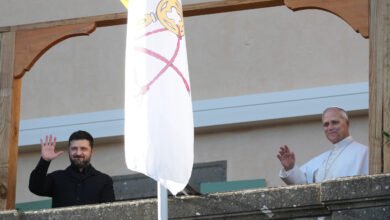The Episcopal Church announces four candidates for presiding bishop
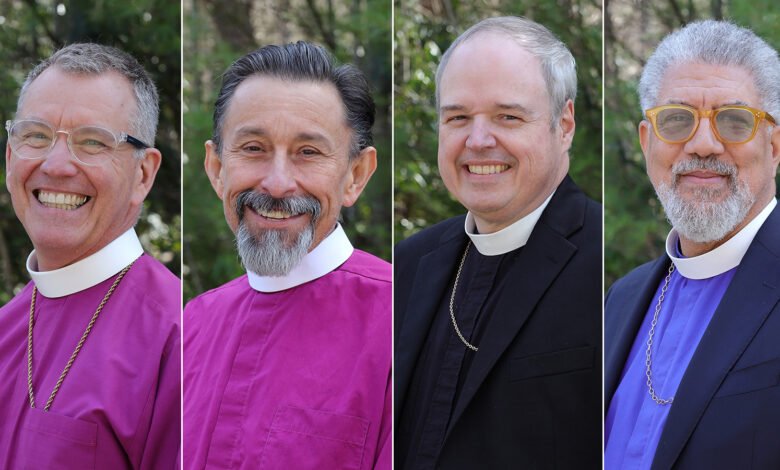
(RNS) — Four candidates have been selected to stand for election as the 28th presiding bishop of the Episcopal Church, the denomination’s highest office. The nominees include Bishop J. Scott Barker of the Diocese of Nebraska, Bishop Daniel G. P. Gutiérrez of the Diocese of Pennsylvania, Bishop Sean Rowe of the Diocese of Northwestern Pennsylvania and Diocese of Western New York and Bishop Robert Wright of the Diocese of Atlanta.
The vote to select the next presiding bishop will be held in June to succeed Presiding Bishop Michael Curry, whose nine-year term concludes on Oct. 31.
The election is scheduled for June 26 at the denomination’s General Convention, which will take place in Louisville, Kentucky, this year. The House of Bishops will elect the next presiding bishop in a sequestered session, and the House of Deputies, a second voting body of the General Convention made of clergy and lay deputies, will confirm or refuse the bishops’ election.
Bishop Ian T. Douglas, retired bishop of Connecticut and a former candidate for presiding bishop, said the next presiding bishop will need courage and imagination to lead a church that’s “gone from mainstream to the margins.”
The biggest challenges the next presiding bishop faces, he said, include restoring community among the House of Bishops, which has been difficult in a post-COVID-19 era; deepening relationships with the Anglican Communion amid broader tensions over human sexuality; revitalizing the church’s governance; and building trust in the Title IV process, the denomination’s policy for addressing clergy misconduct.
“I believe the next presiding bishop absolutely needs to be focused first and foremost … on the restoring and reconciling action of God and Jesus through the Holy Spirit in all aspects of society,” he told Religion News Service. “In doing so, the church will be revived.”
Douglas, commending the search committee’s faithfulness and hard work, said that all four individuals bring different gifts and backgrounds and believes each can do the job.

Bishop J. Scott Barker of the Diocese of Nebraska. (Courtesy photo)
Barker, born and raised in Omaha, was ordained as bishop in 2011. He has a B.A. in religious studies from Yale College and an M.Div. from Berkeley Divinity School at Yale. In a video posted on the General Convention website, Barker said the “idea of carrying the cross of Jesus” is one that resonates with him in this moment in the life of the church.
“[T]he fact that that reminds us of the person of Jesus and his sacrifice that saved humankind and continues to be the heart of the gospel that we preach feels really important as we talk about endeavors for this moment in the life of the church and imagining our futures together,” he said.
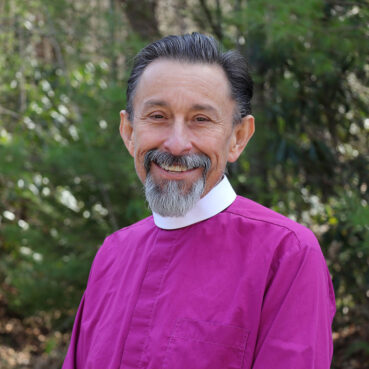
Bishop Daniel G. P. Gutiérrez of the Diocese of Pennsylvania. (Courtesy photo)
Gutiérrez was ordained in 2016 as the Episcopal Diocese of Pennsylvania’s 16th bishop. Born in New Mexico, Gutiérrez was chief of staff to the mayor of Albuquerque before studying at Trinity School for Ministry in Ambridge, Pennsylvania, and taking a master’s degree in theological studies from St. Norbert College.
“I am not your typical Episcopal bishop,” he said in his video on the General Convention website. “I’m a poor Chicano from the wrong side of the tracks, who had to endure, learn resilience, and then live, love and compassion. The love of Jesus Christ and faithful people gave me hope, and I must share it with everyone that I meet.”
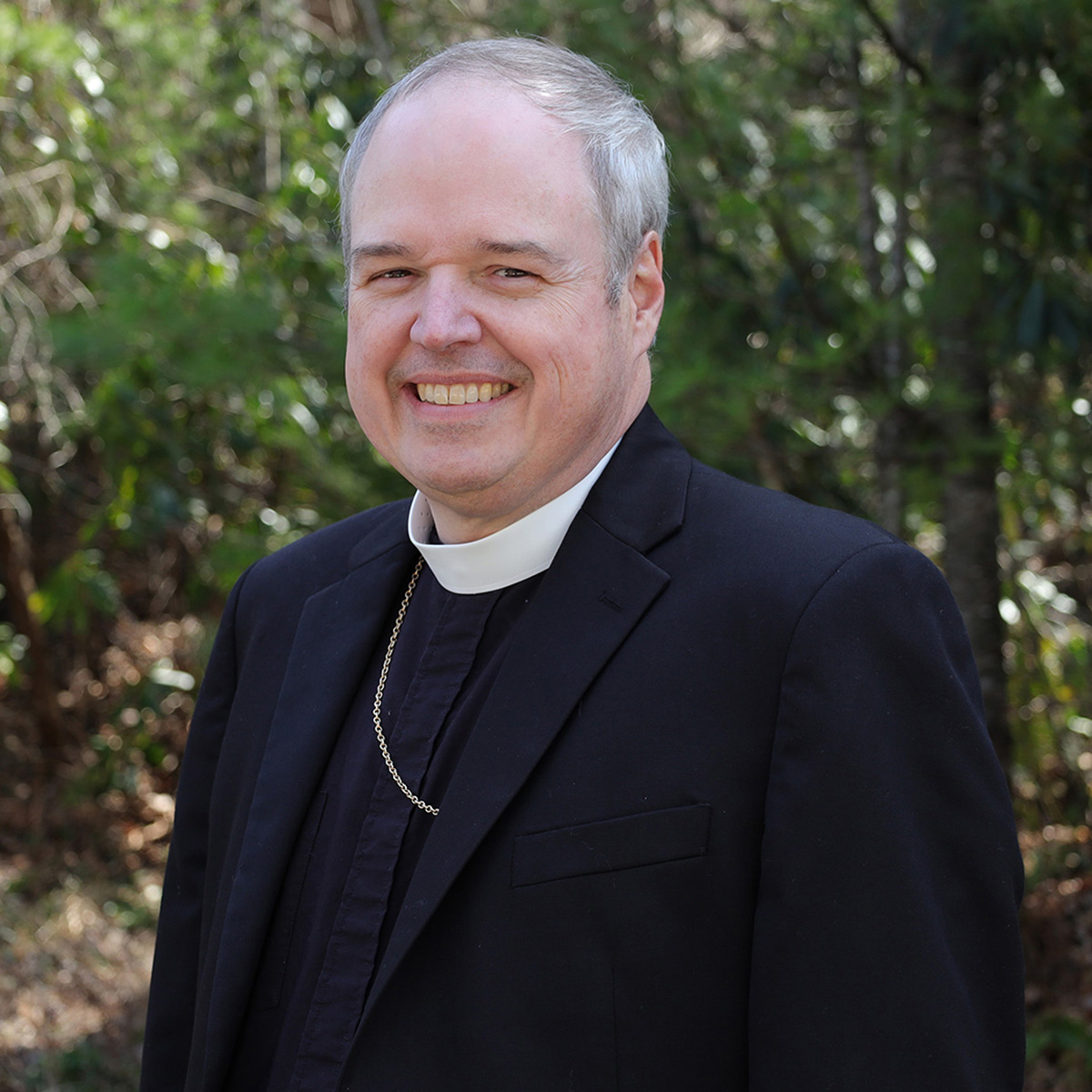
Bishop Sean Rowe of the Diocese of Northwestern Pennsylvania and Diocese of Western New York. (Courtesy photo)
Rowe has been bishop of the Diocese of Northwestern Pennsylvania since 2007 and became bishop provisional of Western New York in 2019. He was born in Sharon, Pennsylvania, and is a graduate of Grove City College and of Virginia Theological Seminary. He also has a Ph.D. in organizational learning and leadership from Gannon University in Erie, Pennsylvania.
In the video posted on the General Convention website, Rowe said the next presiding bishop must be attentive to voices that can “breathe fresh air and new light and life into our beloved church,” helping the church “hear the testimony of the women at the empty tomb” and “recognize Jesus on the road.”
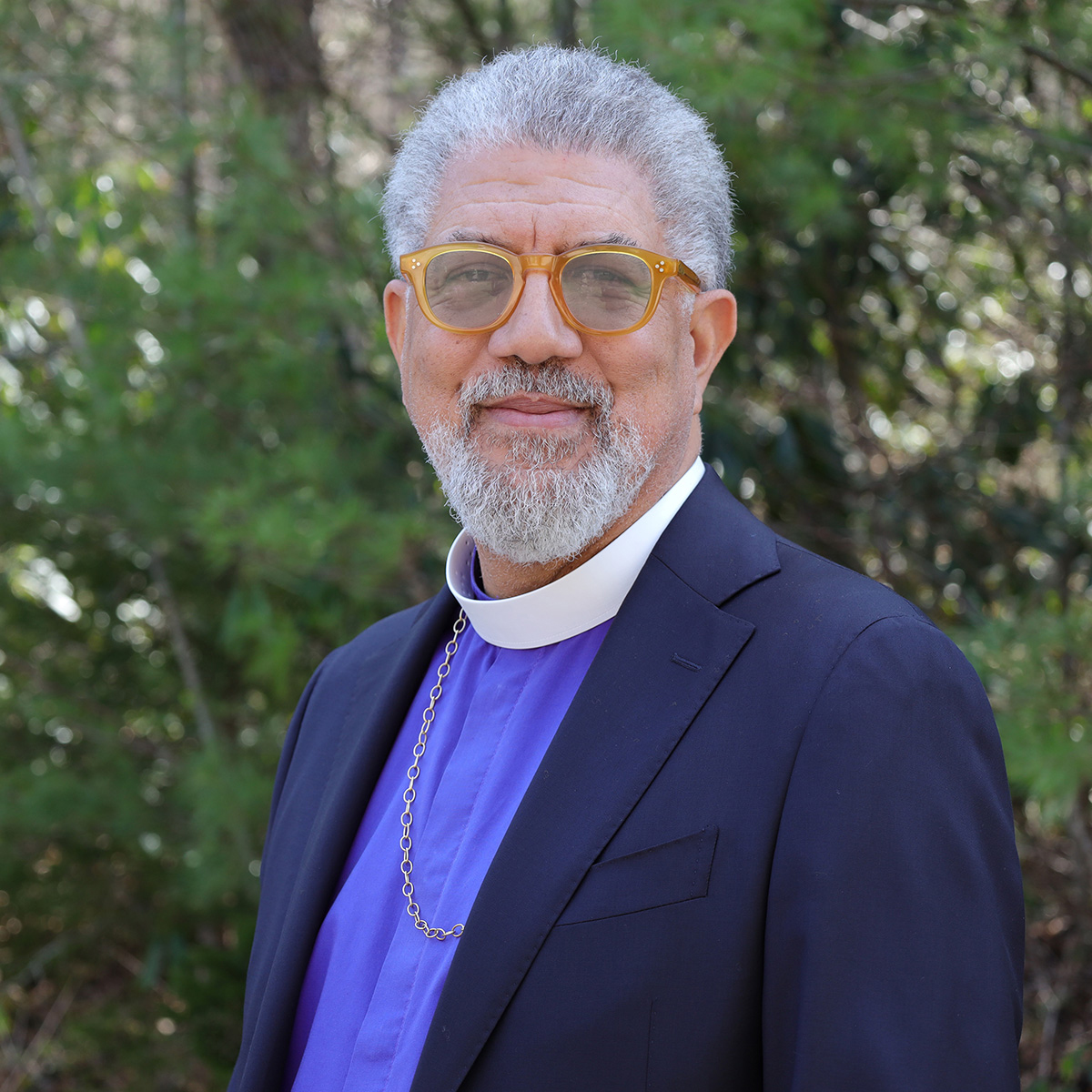
Bishop Robert Wright of the Diocese of Atlanta. (Courtesy photo)
Wright, the 10th bishop of the Episcopal Diocese of Atlanta, was ordained a bishop in 2012. He’s the first Black bishop of the diocese. He was born in an orphanage in Pittsburgh and enlisted in the U.S. Navy before earning a degree in history and political science from Howard University in Washington. He worked as a children’s advocate for two mayors of Washington and has an M.Div. from Virginia Theological Seminary.
“God is right now extending an invitation for us to be remade as individuals and as a church,” Wright said in his online video. “Our part of this difficult, even painful refashioning is to offer ourselves, our systems, our souls and our bodies to a trustworthy God who is reworking Christ’s church into more than we can ask or imagine, according to the faith at work in us.”
The candidates were chosen by the Joint Nominating Committee for the Election of the Presiding Bishop, a 20-person committee of bishops, clergy and laypeople that has been gearing up for this election since fall 2021. The committee is required to nominate at least three bishops for the job.
Additional bishops may also be nominated via petition. Any bishop or deputy who will be part of the upcoming General Convention can nominate a bishop, with their permission, between April 3 and April 15. After completing the application and required screening process, any additional nominees are expected to be announced in early June. All nominees will be presented to both houses of General Convention on June 21.
“We appreciate the many Episcopalians who prayerfully set us on our way to discerning this slate of nominees,” the Rt. Rev. Mark Lattime, bishop of Alaska, who co-chairs the committee with Canon Steve Nishibayashi of the Episcopal Diocese of Los Angeles, said in a press release.
The Rev. Maureen-Elizabeth Hagen, a deacon who chairs the nominations subcommittee, added, “We felt the Holy Spirit’s presence during this process and are prayerfully thankful for the guidance we received.”
The presiding bishop’s job description has greatly evolved since the late 18th century. Originally limited to the role of a senior bishop who presides over the House of Bishops, today those duties have expanded to include the role of pastor, chief executive and prophetic voice for the Episcopal Church. Unlike primates in some other Anglican denominations, the presiding bishop’s office is part of the General Convention, not above it.
Curry, 70, has been among the better-known presiding bishops in recent decades, not only because of the history made by his election as a Black man, but because he was invited to give the sermon at the wedding of the Duke and Duchess of Sussex in 2018, when, according to “Today,” he “nearly stole the show.” Since May 2023, Curry has been receiving medical treatment for internal bleeding and heart conditions. In March, he received a pacemaker to treat his atrial fibrillation, or irregular heartbeat.
Source link



